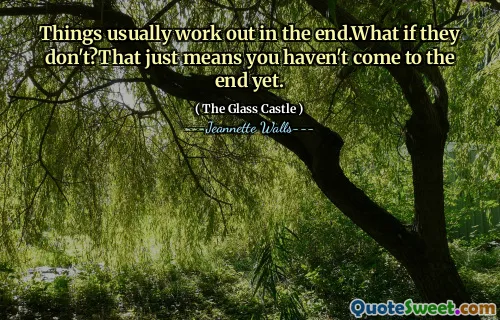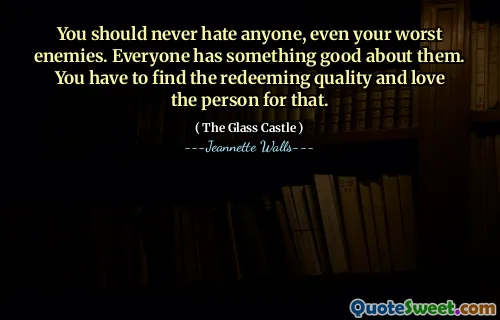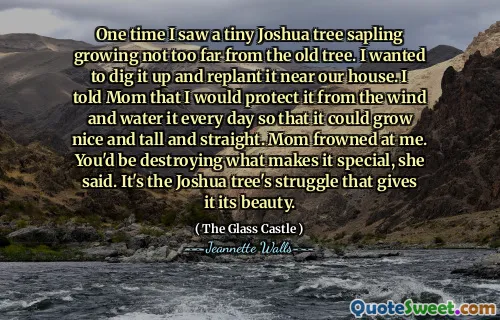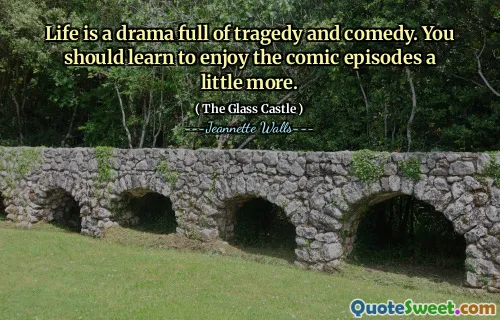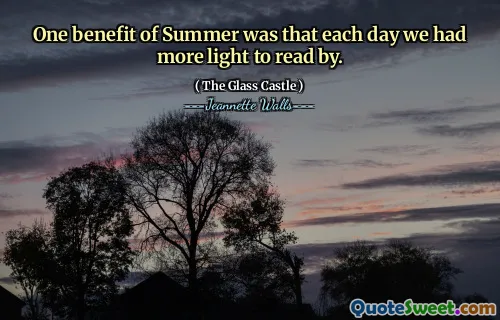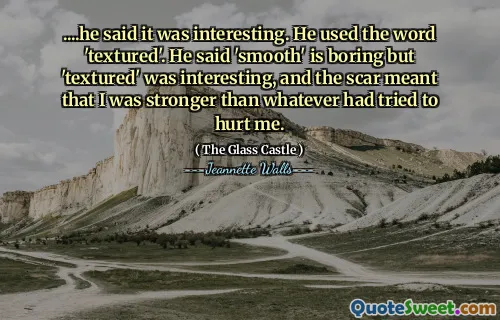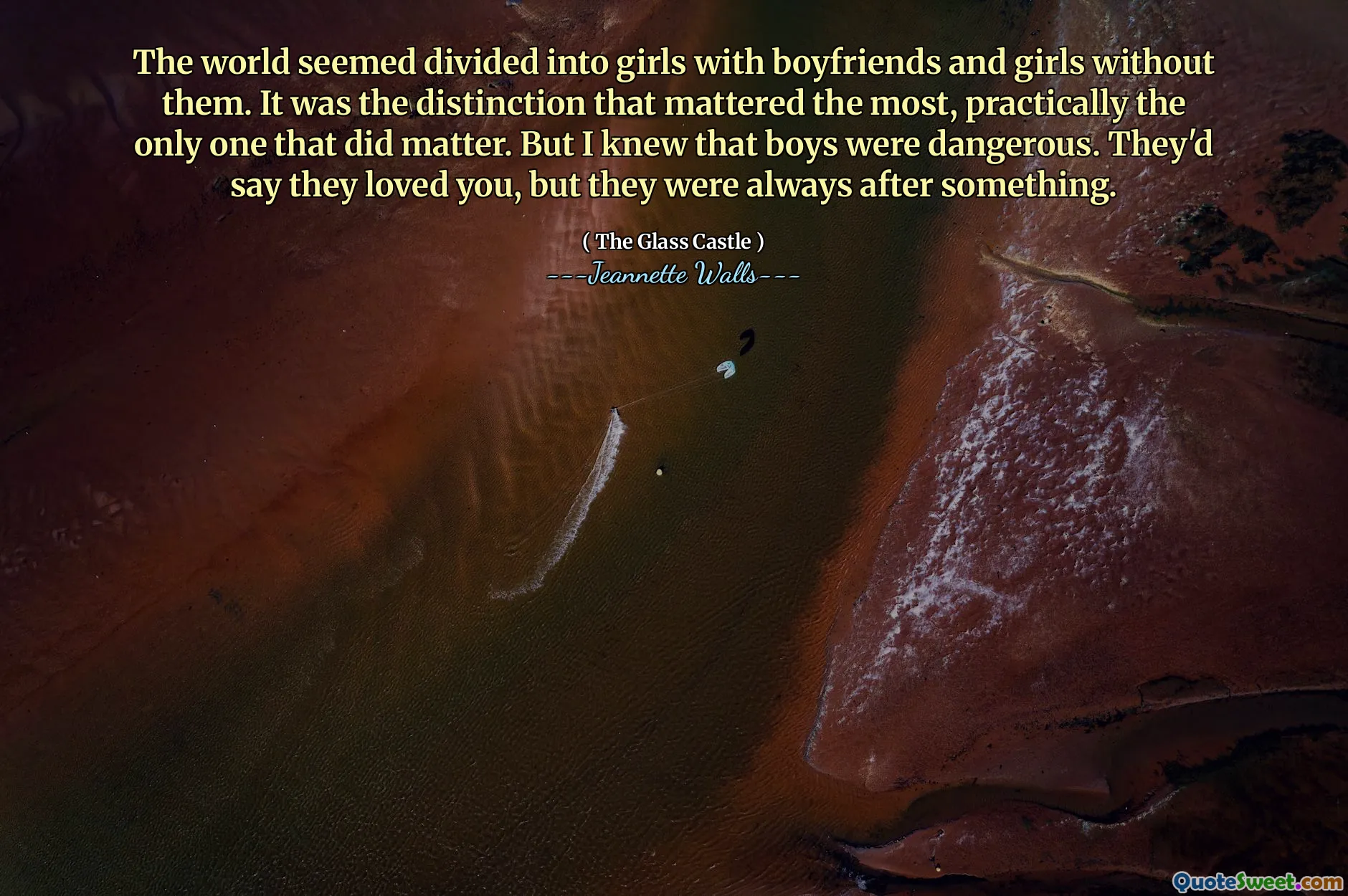
The world seemed divided into girls with boyfriends and girls without them. It was the distinction that mattered the most, practically the only one that did matter. But I knew that boys were dangerous. They'd say they loved you, but they were always after something.
In "The Glass Castle," Jeannette Walls reflects on the social divide among girls based on their relationship status, emphasizing how significant it is to be paired with a boyfriend. This distinction shapes their identities and social interactions, making it seem like the most crucial aspect of their lives. Walls offers insight into the pressure girls feel to conform to these norms and the way relationships can define their self-worth. Despite the allure of having a boyfriend, Walls recognizes the inherent dangers involved. She acknowledges that boys often express love, but their intentions may be self-serving. This realization highlights a more complex emotional landscape, illustrating both the desire for connection and the caution that comes with it. Ultimately, the narrative sheds light on the challenges faced by young girls navigating their feelings and social expectations.
In "The Glass Castle," Jeannette Walls reflects on the social divide among girls based on their relationship status, emphasizing how significant it is to be paired with a boyfriend. This distinction shapes their identities and social interactions, making it seem like the most crucial aspect of their lives. Walls offers insight into the pressure girls feel to conform to these norms and the way relationships can define their self-worth.
Despite the allure of having a boyfriend, Walls recognizes the inherent dangers involved. She acknowledges that boys often express love, but their intentions may be self-serving. This realization highlights a more complex emotional landscape, illustrating both the desire for connection and the caution that comes with it. Ultimately, the narrative sheds light on the challenges faced by young girls navigating their feelings and social expectations.
